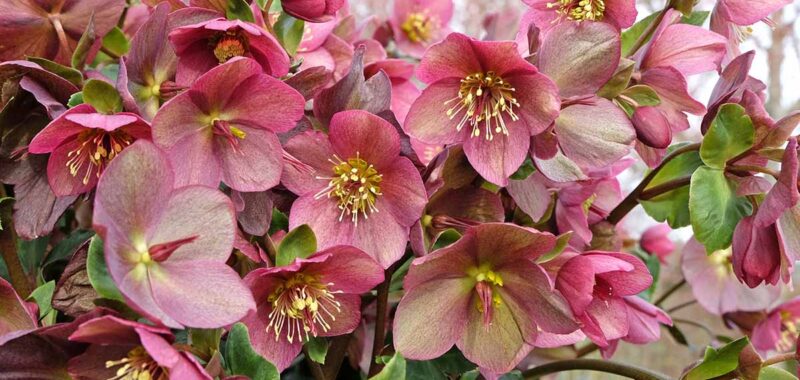Let’s discuss how to trim both kinds.
Safe Handling
Whether planting, weeding around them, or pruning, it’s essential to wear protective gloves when working with hellebores.
All parts of the plant, including the sap, are toxic to people and pets, causing reactions ranging from contact dermatitis to poisoning from ingestion.
In addition, the serrated edges of large, older leaves may be sharp enough to penetrate fabric.
Consider a pair of washable gloves coated in nitrile, a synthetic rubber. It offers protection and is easy to clean.
These gloves from Wildflower Tools are breathable nylon with a rubbery nitrile coating on the palms and fingers for puncture resistance. They are machine washable.

Garden Gloves with Nitrile Coating
Garden Gloves for Men and Women with Nitrile Coating are available from Wildflower Tools via Amazon in small, medium, and large sizes.
How to Prune
Hellebore foliage may be evergreen, but that doesn’t mean it comes through the winter in pristine condition.
By late winter, last year’s leaves are generally browned, flattened by snow, marred by leaf spot, and tattered.

Foliage in poor condition renders a plant vulnerable to pests and disease and detract from the beauty of the flowers.
Whether you grow caulescent, acaulescent, or both species, the appearance of buds and blooms in late spring to early winter signals the time to prune some or all of last year’s leaves.

Prepare for pruning by cleaning your gardening gloves per manufacturer recommendations.
Sanitize your pruning shears with nine parts water to one part bleach, rinse, and air dry them.
When the stalks of caulescent species are in bloom, you can remove up to a third of the leaves.

